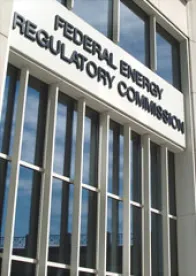In recent years, the Public Utility Regulatory Policies Act (PURPA) “one mile” rule has come under increased scrutiny for favoring small power producers over utilities and consumers. The “one mile” rule, promulgated by the Federal Energy Regulatory Commission (FERC), is used to determine whether multiple facilities of a single power producer are part of the same “site” for the purpose of obtaining “qualifying facility” (QF) status under PURPA. Many utilities have argued that FERC’s application of the “one mile” rule has allowed small power producers to “game the system,” resulting in too many mandatory purchasing contracts and high energy costs being passed on to consumers. This concern is raised most frequently with wind farms, where turbines are located within relatively close proximity.
Last month, the House Energy and Commerce Committee’s Subcommittee on Energy (Energy and Commerce Subcommittee) held a hearing focused on Liquefied Natural Gas (LNG) exports and PURPA modernization, indicating that if FERC does not revise the “one mile” rule soon, Congress may take the lead.
Congress Weighs In
At the Energy and Commerce Subcommittee hearing, lawmakers focused on H.R. 4476, the PURPA Modernization Act of 2017, which was introduced last year by Congressman Walberg (R-MI) and calls on FERC to amend the “one mile” rule, among other things. The hearing included testimony from various witnesses and questions from lawmakers about the three major proposed changes to PURPA—including amendment of the “one mile” rule.
FERC General Counsel James Danly explained that the “one mile” rule was implemented by regulation based on simple measurement between generating facilities, a process now complicated by the growth of renewable energy projects that often have generating units organized into large arrays. This is particularly true of large wind and solar farms. Mr. Danly stated that H.R. 4476 would alter the “one mile” rule by converting it into a “rebuttable presumption,” meaning that FERC would evaluate other statutory factors in addition to distance between facilities when deciding whether a particular project actually meets QF requirements.
Many lawmakers expressed favorable views toward reforming the “one mile rule.” For example, Congressman Walden (R-OR) stated he heard testimony from project developers at a prior hearing about how small producers were constructing projects with generation units just far enough apart to evade the rule. Congressman Walden stated this was a problem and that consumer needs must be put first. Congressman Schrader (D-OR) also cited several specific examples from his state where small power projects were “gaming” by obtaining numerous QF certifications for small generation units.
Other House members were open to revising the “one mile” rule, but skeptical about the effects of other provisions in H.R. 4476. Congressman Pallone (D-NJ), for example, stated that he was not completely opposed to updating PURPA and was open to changing the “one mile” rule, however he was concerned that the bill provision reducing mandatory power purchasing requirements would allow solidification of utility monopolies. Similarly, Congressman Loebsack (D-IA) stated he was concerned about intentional disaggregating of small power projects, but wanted to ensure the federal government continues to promote renewable energy development.
Only one witness expressed opposition to legislative change of the “one mile” rule. Karl Rábago of Rábago Energy LLC and the Pace Energy and Climate Center testified that changing the rule to a rebuttable presumption would allow FERC litigation to become an “anticompetitive tool,” making participation in the energy markets even more difficult for small energy producers. The bill’s “PURPA modernization,” he argued, would further tip the scales in favor of utility monopolies.
What to Expect from FERC
Mr. Danly made no comment on whether FERC might revise the “one mile” rule using its own regulations, though he stated that it could do so when asked by Congressman Walden whether H.R. 4476 was even necessary to change the rule. Mr. Danly did state, however, that comments on the “one mile” rule were currently “under advisement.” One thing is certain: Until FERC promulgates its own reforms to the “one mile” rule, several members of Congress seem intent on pursuing substantial changes to the rule through the legislative process.


 />i
/>i

